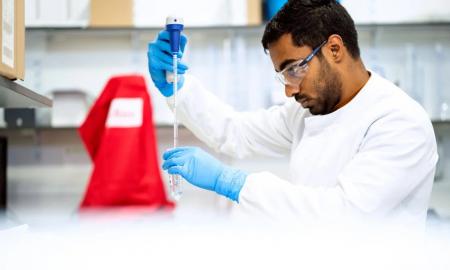Drug addiction is an uncontrollable dependence on illegal or legal drugs or substances despite their negative consequences on the brain. Drug addiction is considered a chronic disease because it takes a long period of consistent treatment for the patient to recover fully. All addictions start with a voluntary action to try a certain drug. However, as an individual continues to use the drug, he or she loses control and becomes dependent on the drug. The drug begins to influence his or her behavior and ability to work or relate with others. With strong support and treatment, drug addicts can recover fully and live normal lives without the substances.
Principles of effective drug addiction treatment
Drug addiction affect an individual’s behavior and brain function. An addict requires immediate access to treatment and must remain committed to the treatment process long enough to recover. One treatment approach does not suit all individuals. The right treatment addresses an individual’s unique needs. The treatment approach should change as those needs change.
Drug addiction is often associated with other physical and mental disorders. The right treatment for an individual should address those disorders as well. Effective treatment includes a combination of medication, counseling and behavioral therapy. Medication or detoxification along cannot treat drug addiction.
Another principle for effective treatment is that the process does not have to be voluntary to work. In fact, most drug addicts live in denial and refuse to seek help to overcome their addiction. Addicts require close monitoring and follow up to avoid a relapse, which is common without proper care and follow up.
The addiction treatment process
1. Rehabilitation
Drug addicts require quick access to effective treatment to avoid worse effects of the drug on their health and behavior. The first step is to identify a good drug rehab in Houston where an individual can get effective treatment. As indicated earlier, this decision may be voluntary or involuntary for the addict. The major types of drug rehab facilities offer inpatient treatment, outpatient treatment, and a combination of both.
Inpatient treatment is recommended to individuals who have used a drug or substances for a long period. The patients here may have other medical conditions. Inpatient treatment is effective because it separates individuals from the temptation to go back to the drug. Inpatient services are offered in hospitals or residential facilities. In both locations, patients get medical services and surveillances from professionals 24/7.
Outpatient treatment services are similar to inpatient services with the exception that individuals go home after treatment. The program is recommended for short-lived addictions. Individuals can handle their family and work responsibilities while undergoing treatment. The treatments discussed below are administered in both inpatient and outpatient rehab programs.
2. Detoxification and medication
The first treatment process in a rehab is detoxification, which involves removing all traces of the drug or substance from the body. Medication is then given to help patients overcome the withdrawal symptoms that ensue. The medication and type of detoxification administered depend on an individual’s metabolism, type and dosage of drug used, and duration of drug use. Additional medication is prescribed for patients with other medical conditions.
Methadone, bruprenorphine, and naltrexone are mostly used to treat opioid addiction. Disulfiram, acamprosate, and naltrexone are administered to alcohol addicts. Bupropion and varenicline are mostly used to tobacco addiction. The medication treats withdrawal symptoms and reduces the individual’s craving for the drug or substance. Drug addiction treatment often leads to depression and anxiety, which require additional medication.
3. Counseling and therapy
Medication and detoxification alone cannot treat drug addiction. Patients need help in correcting their behavior that resulted or led to drug use. Some require help in dealing from stress and depression from some fatal events in their past. The major types of therapy in rehabs include individual, family, and group therapy. Individual therapy includes cognitive-behavioral therapy, which helps individuals identify thought patterns or issues that trigger drug use.
Patients learn time management skills to help them spend more time pursuing their interests and hobbies instead of drug abuse. Group therapy helps individuals in the same situation to find comfort and support from one another. Members share their struggles and encourage one another to remain committed to treatment. Some therapy sessions involve family members who in most cases are the best support system for recovering addicts.
4. Evaluation and long-term follow up
Patients require continued attention and monitoring after completing their rehab program. Many of them relapse and go back to addiction. The best rehab facilities offer follow up care to patients to help them lead normal lives without drugs. For some patients, recovering from addiction is easy especially after dealing with triggers. However, most of them require lifelong support and evaluation.
One way to ensure that patients learn to live without drugs is to place them in sober living homes. In these homes, patients lead normal lives and do all the house chores while adjusting to their new way of living. Individual and group therapy sessions may continue at this recovery stage.
If you are addicted to any drug or substance or know someone struggling with chronic condition, seek immediate help from the nearest rehab. Some of the rehabs offer free treatment to addicts who cannot afford the fee charged in other rehab. Every individual can recover fully from any substance addiction no matter the duration of the addiction if he or she seeks help.






